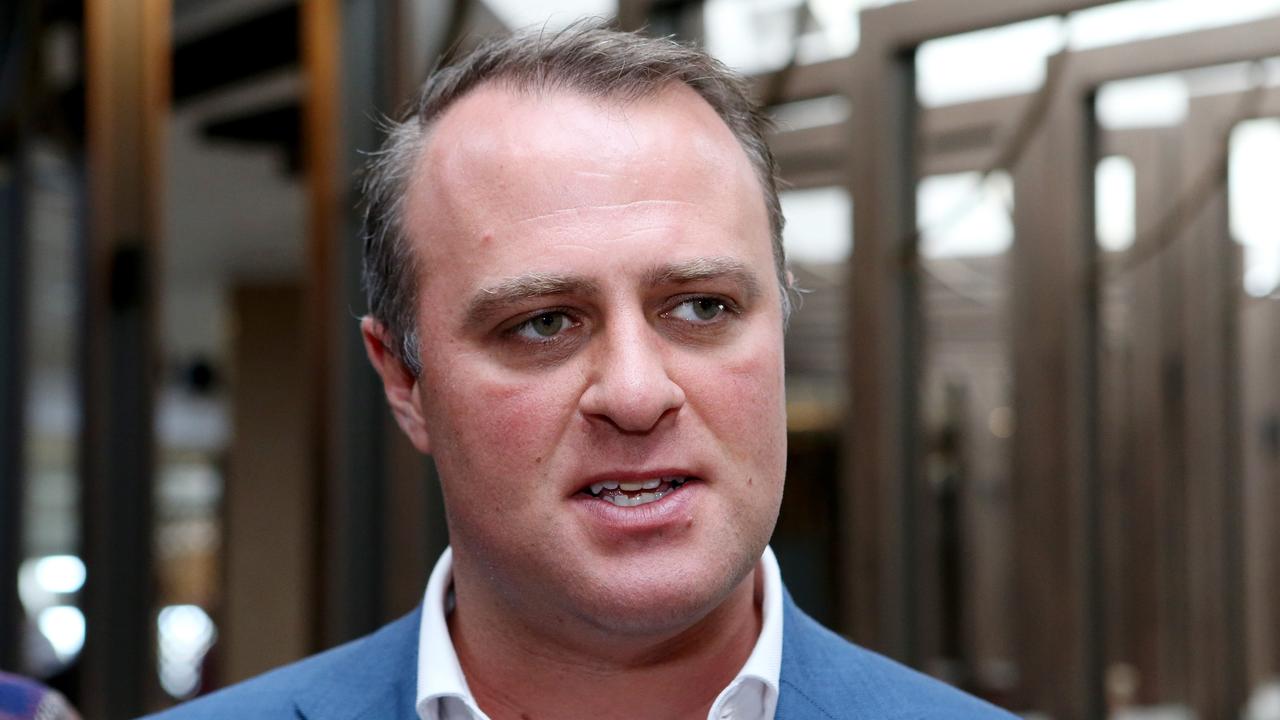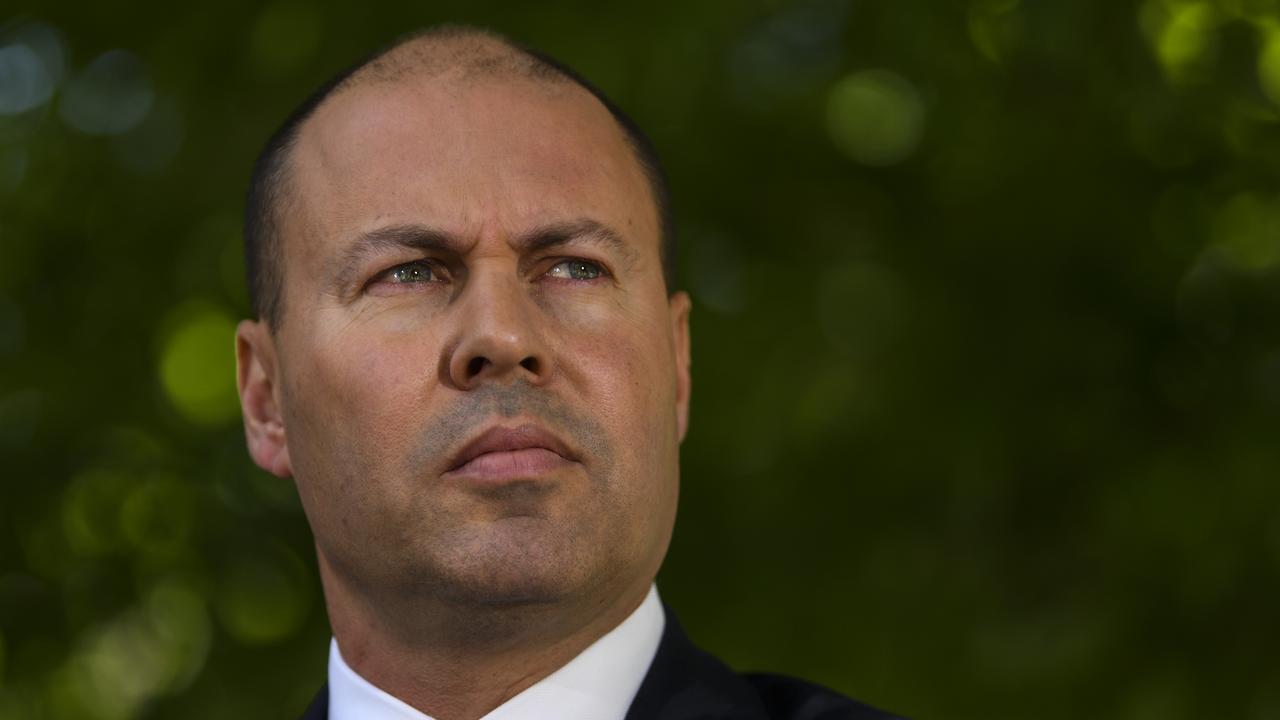Bill Shorten’s hit on ‘fat cat’ employers over Labor wages plan
Bill Shorten has issued a new hit in his war on business, caning criticism of a Labor wages plan that could affect 2.3m workers.

Bill Shorten has launched a fresh assault in his war on business, branding employers as “fat cats” for criticising Labor’s wages policy and threatening to impose once-in-a-generation changes that would force the industrial umpire to deliver bigger pay rises to 2.3 million workers.
Arguing that the principles behind setting the minimum wage had not changed since the advent of the internet, the Opposition Leader said Labor was considering industrial relations law reforms that would require the Fair Work Commission to give greater weight to the needs of the low paid when making its annual decision.
The nation’s three biggest employer organisations — AiGroup, the Australian Chamber of Commerce and Industry, and the Business Council of Australia — blasted Mr Shorten’s plan, warning that Labor would risk one person’s job for another’s pay rise.
Mr Shorten, who has pledged to restore lost penalty rates and waged a class-war political campaign over inequality and the Coalition’s big business tax cuts, yesterday rejected suggestions that introducing a living wage, defined by unions as 60 per cent of the median wage, would lead to higher unemployment.
“I love this argument put aside by the bosses of Australia, the fat cats, the top end of town,” Mr Shorten said. “They say if we pay the poorest workers in Australia a bit more, that’s out of control. But how is it that the executives are happy to take more and more in corporate profits? This is the problem of Australia in 2019. The benefits of hard work are not equally spread.”
As unions and employer groups finalised their claims for this year’s minimum wage review, Mr Shorten warned employers that Labor was looking at changing the legislated guidelines that the Fair Work Commission must consider in making its annual ruling. “The Fair Work Commission of course is bound by the act, but the act and the guidelines are not set in concrete,” Mr Shorten said.
“They can all be reformed. You know, the minimum wage hasn’t really been updated since the 80s. And I don’t mean the increments, I mean some of the principles. You know, back in the mid-80s, the internet hadn’t been invented, water was free, yet mobile phones weren’t used.”
Josh Frydenberg said last night that Labor, after previously saying it would “encourage” the Fair Work Commission to lift wages, had revealed its plans to rewrite the industrial rule book to suit its union backers. “They make a big deal about having an independent umpire, but when the umpire rules against them and the unions they spit the dummy,” the Treasurer said.
“Australia has the third highest real minimum wage in the OECD, with the key to lifting wages at all levels being higher productivity, greater competition for labour and a strong economy.”

ACCI said Labor would undermine the independence of the industrial umpire, which was required to balance the interests of the low paid with economic considerations and the need to prevent unemployment. “Wage decisions must be made on their independent merits, and not allow for political influence,” said ACCI chief executive James Pearson.
“Manipulating these factors could lead to bad outcomes. It could see one person’s pay rise cost another person their job.”
AiGroup chief executive Innes Willox said awarding excessive and unsustainable minimum wage rises “will not just harm businesses — they’re a sure way to destroy jobs”.
Mr Willox said the Fair Work Commission had delivered pay rises of 3.3 per cent and 3.5 per cent in its past two minimum wage reviews — results that were far in excess of inflation and average wage movements.
“Therefore, any suggestion that the Fair Work Commission is not giving enough weight to the needs of low-paid workers in not supported by the facts,” he said.
Business Council of Australia chief executive Jennifer Westacott said the only way to lift wages without damaging the economy was to lift productivity. She urged a fresh focus on training to boost workers’ skills. “Higher wages and productivity improvements must go hand in hand, otherwise consumers will be hit with price rises, and only some workers will see real wages growth, not all workers across the economy,” Ms Westacott said.
Restaurateur Marco Handabak said a steep rise in the minimum wage would force him to reduce casual staff hours or even lay off employees at his “already struggling” business. The owner of Inca’s Peruvian restaurant, in Sydney’s Darlinghurst, said he was far from a “fat cat”, starting his day with a 6am market trip and finishing close to midnight.
“How can he call me a ‘fat cat’ when I’m working hard trying to keep my staff in a job and keep my business afloat?” Mr Handabak said. “It’s not just business owners that would be taking a hit, its employees because bosses can’t afford to keep them.”
The minimum wage, which applies to 2.3 million workers in the award system, is currently $719.20, after the Fair Work Commission last year increased the weekly rate by $24.30 — the biggest rise in eight years. The ACTU has proposed a long-term “living wage” target of 60 per cent of the $1320-a-week median wage, which would deliver the lowest paid an extra $72.80 a week.
Labor has declined to say what its definition of a living wage is, but finance spokesman Jim Chalmers said the opposition was not proposing the union movement’s target.
The Fair Work Commission said in its 2018 minimum wage decision that the adjustment ‘‘would not lift all (national minimum wage) and award-reliant employees out of poverty”. It said granting a wage rise that would lift all workers out of poverty was “likely to run a substantial risk of adverse employment effects”.
“Such adverse effects will impact on those groups who are already marginalised in the labour market, with a corresponding impact on the vulnerability of households to poverty due to loss of employment or hours,” the commission said.
Additional reporting: Jessica Cortis




To join the conversation, please log in. Don't have an account? Register
Join the conversation, you are commenting as Logout